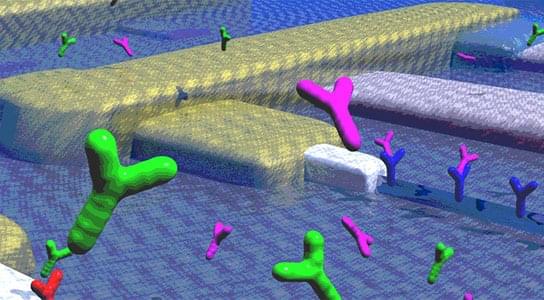In a newly published study, scientists detail the development of electronic biosensors that can be regenerated and reused repeatedly.
Imagine a swarm of tiny devices only a few hundred nanometers in size that can detect trace amounts of toxins in a water supply or the very earliest signs of cancer in the blood. Now imagine that these tiny sensors can reset themselves, allowing for repeated use over time inside a body of water – or a human body.
Improving nanodevice biosensors is the goal of Mark Reed, Harold Hodgkinson Professor of Electrical Engineering at the Yale School of Engineering & Applied Science. Reed and his colleagues have reported a recent breakthrough in designing electronic biosensors that can be regenerated and reused repeatedly.









Leave a reply